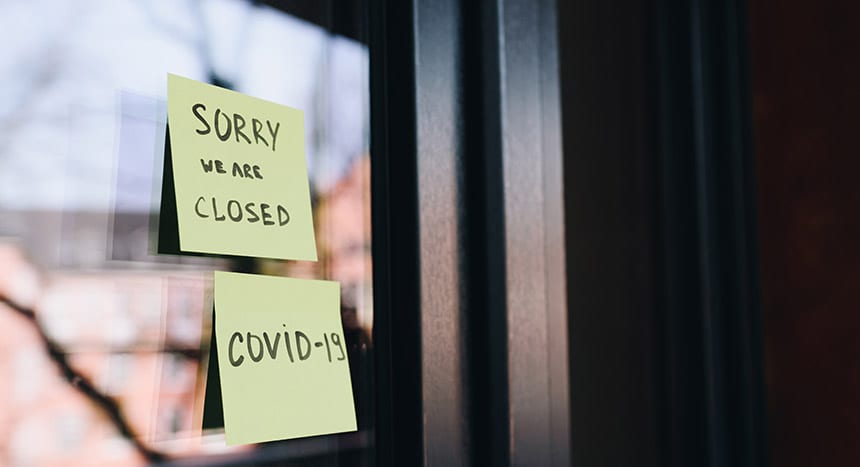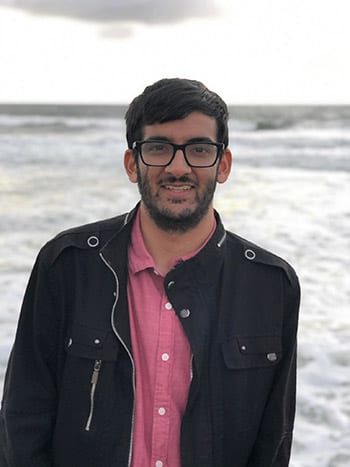
By Gwyneth K. Shaw
The COVID-19 pandemic has upended the working lives of millions of Americans over the past six months, leaving massive numbers unemployed and many others pushed into service as “essential” workers, often without adequate health protections.
For low-income employees in California, the students in Berkeley Law’s Workers’ Rights Clinic have been a beacon of assistance and understanding. On Thursday nights via Zoom and phone, they work with clients of the San Francisco-based nonprofit Legal Aid at Work on everything from deciphering the unemployment insurance system to navigating unsafe conditions.
The clinic is one of more than three dozen Student-Initiated Legal Services Projects, or SLPS, operating through the school’s Pro Bono Program.
Jasjit Mundh ’21, one of the project’s co-directors in the spring, says the group saw an immediate surge in clients once businesses began to close down. The pandemic has put tremendous pressure on low-wage workers, many of whom are in health care and other sectors deemed “essential” to respond to the crisis.
“One thing COVID has shown is that frontline workers, often those who are underpaid and exploited for the hard work they do, are the foundation of society. And the majority of these folks are people of color,” she says. “We’ve been able to help provide much-needed legal advice about navigating work safety and other issues, including privacy and health violations and race discrimination at work.”
Drea Núñez ’20, who worked with the clinic throughout her law school career and hopes to return as a volunteer attorney once she has her law license, says the clinic has been more important than ever during this fraught time.
“We have instructed clients about their rights regarding reasonable accommodations and safety protocols, directed clients to the correct government agencies to file claims, and helped clients navigate the new state and federal regulations created because of the pandemic,” she says. “Our work has not fundamentally changed, but the volume of clients needing assistance has definitely increased. As a native Spanish speaker, I really felt like I could not take any weeks off because there are so few Spanish speakers in the legal profession, but so many monolingual Spanish speakers that need help.”
No summer slide

The tide of workers seeking help hasn’t abated, says Nathan Desai ’22, who took over during the summer as one of four clinic co-directors for this academic year. Typically, the students take a break while classes are out of session. But they kept working this year, pausing only to recruit new 1L students as the fall semester began.
“Our top goal is always to compassionately, competently, and confidently help underrepresented community members deal with the legal issues they encounter in the workplace,” Desai says. “We are all committed to that mission and the odd circumstances of this semester haven’t really changed that. The pandemic has presented obstacles and it has redefined that mission in some ways.”
Going virtual has, for example, allowed the clinic to serve clients outside of the Bay Area. It is also reshaping the very definition of “workplace issue,” Desai says, and the state continues to change its policies, keeping the students on their toes.
“During the first few weeks, we had a massive number of clients encountering issues related to COVID-19 such as unemployment, unsafe working conditions, and sick leave. We had all worked with issues like these before, but COVID-19 reframed them in new and challenging ways,” he says. “The pandemic essentially opened up a whole new area of employment law and we all had to acquaint ourselves with it quickly.”
Mike Gaitley, a senior staff attorney at Legal Aid at Work and a supervisor of the clinic, says they handled more clients in the pandemic’s first six weeks than in all of 2019. Berkeley Law is one of eight schools that work with the organization on employment issues, he says — and the students stood out for their commitment through the summer.
“Thursday night was a great night, always,” Gaitley says.
Especially because many of the clinic students are 1Ls, he adds, the experience is a way to connect doctrinal classwork to the real world.
“Every night, we’re taking what they’re learning in law school and bringing it to the community,” he says. “It’s really great for students to see, ‘Oh, that’s why I’m learning about breach of contract.’ Particularly for first-year students, law school can feel disconnected from the practice of law.
“This keeps them grounded in why they went to law school in the first place.”
Lasting impact
The students agree, and say that’s what keeps them coming back.
“Like us, many students are here to help people, and the clinic has given us a chance to do that by assisting clients on a personal level,” Desai says. “Oftentimes when you finish talking to a client, you can hear the confidence in their voice as they understand what exactly they need to do. It’s impossible not to smile when you notice the shift from overwhelmed at the start of an interview to relief at the end, and that change serves as a great reminder that our work really does matter.”
Núñez calls her advocacy work a powerful reminder of what she wants to be as a lawyer, giving her a highlight this spring amid heightened anxiety about finishing law school and studying for the bar exam.
“I am so grateful to be able to do this work at this moment,” she says. “The world is so full of despair right now, and I feel lucky to be in a position to help some of the more vulnerable members of our community.”
Mundh says her work with the clinic “means everything.”
“I was raised in a low-income, single-parent household and often witnessed my mother and community members be at the mercy of their employers. I came to law school to help play some role in leveling the playing field between those who have power and those who will someday obtain it,” she says. “By volunteering during a time of worldwide uncertainty, I feel like I’ve been able to use my degree to simplify complex systems and help the most vulnerable — which is exactly why I wanted to go to law school in the first place.”